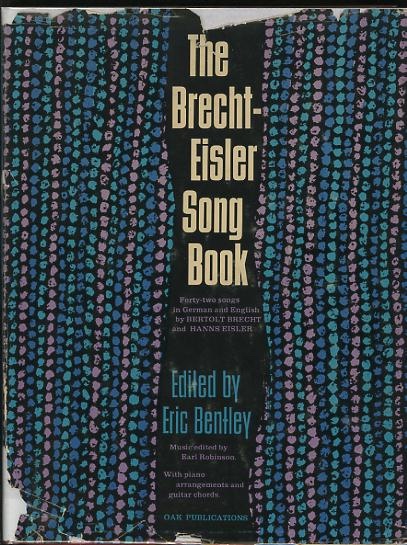Hanns Eisler
By:
July 6, 2009

Kurt Weill settled into a successful Broadway career after escaping Nazi Germany, but the American soujourn of Brecht’s other major Weimar-era musical collaborator did not end so fortunately. HANNS EISLER (1898-1962) set his Schoenberg-trained hand to scoring high-quality (but hardly radical) fare by such fellow emigres as Fritz Lang (Hangmen Also Die) and Douglas Sirk (A Scandal of Paris , with Carole Landis’s scorching performance of Eisler’s “Song of the Flame”), as well as penning the still-fascinating treatise Composing for the Films with T.W. Adorno. One of the first artists called before HUAC, which labeled him “the Karl Marx of Music,” Eisler was hounded out of the U.S. less for his own political activities than for those of his brother Gerhart, a notorious Communist Party bagman. Back in Berlin, he continued to work with Brecht and composed the East German national anthem — but also spoke out against state censorship of jazz and atonal music. English-language recordings of Eisler’s agit-lieder are hard to come by, though Dresden Dolls’ Amanda Palmer and even Sting have essayed individual songs; Dagmar Krause’s 1986 all-Eisler album Tank Battles isn’t for purists, but it’s an excellent way in for curious art-rockers.
***
On his or her birthday, HiLobrow irregularly pays tribute to one of our high-, low-, no-, or hilobrow heroes. Also born this date: | Frida Kahlo | Tenzin Gyatso |
READ MORE about members of the Hardboiled Generation (1894-1903).
